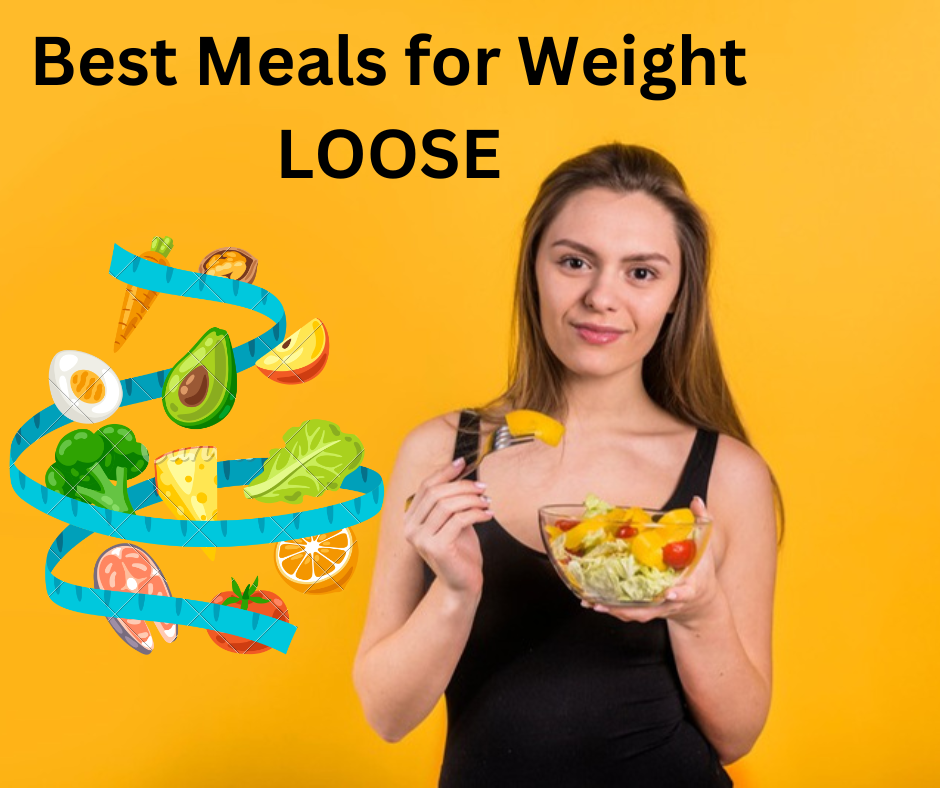Introduction:
When you’re trying to lose weight, what you eat before your workout can make a big difference. A good pre-workout meal will give you energy, help you burn more calories, and make your workouts more effective. Here, we will discuss the best pre-workout meal options that are simple to prepare and perfect for weight loss.
Table of Contents
Why Pre-Workout Meals Matter
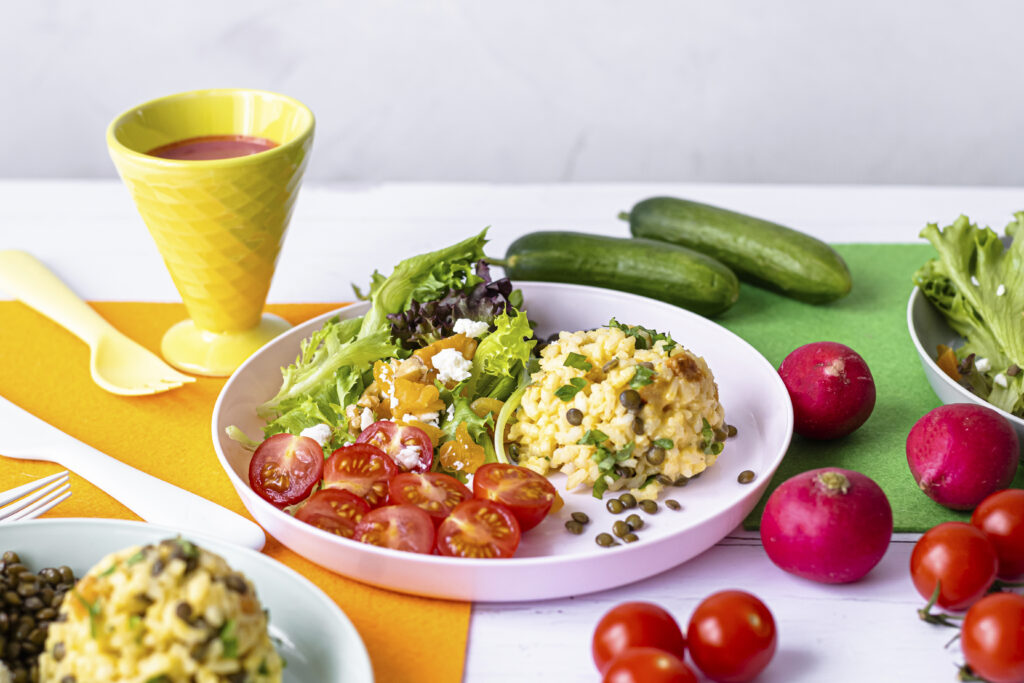
When choosing a pre-workout meal for weight loss, look for:
- Low-calorie options: Helps you create a calorie deficit, which is needed for weight loss.
- High protein: Helps build and maintain muscle, which can increase your metabolism.
- Complex carbs: Provides sustained energy without spiking your blood sugar.
- Healthy fats: Keeps you feeling full and satisfied.
Best Pre-Workout Meals for Weight Loss
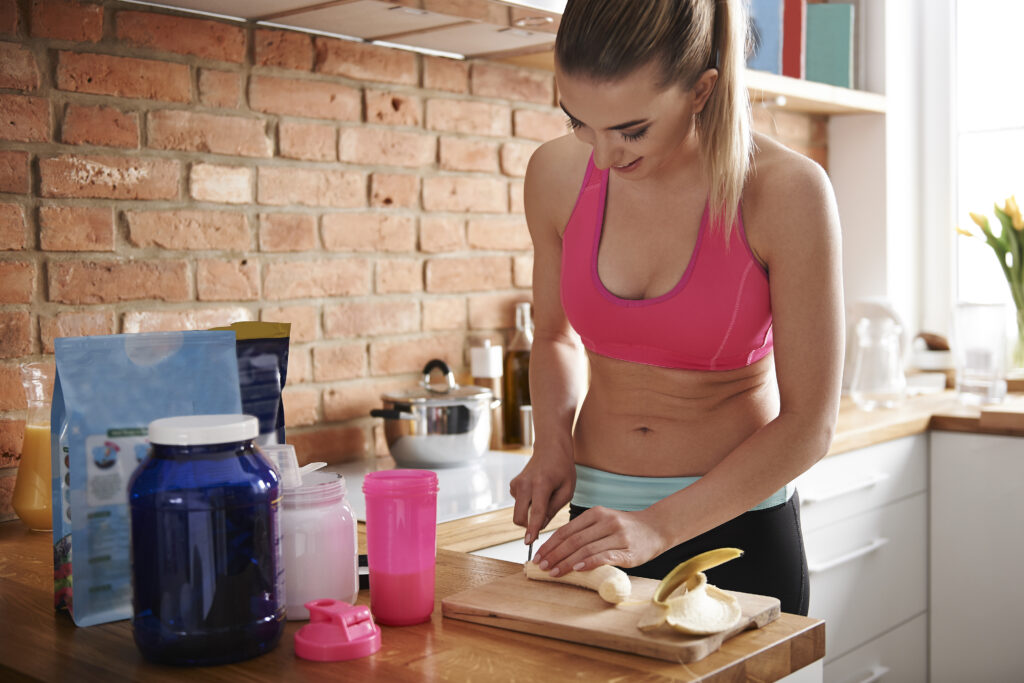
Choosing the right pre-workout meal can be crucial for weight loss and enhancing workout performance. Here are some of the best options to consider:
1. Greek Yogurt with Berries
- Why: Greek yogurt is high in protein, which helps build muscle and keep you feeling full. Berries add a low-calorie, antioxidant-rich sweetness.
- Preparation: Combine a cup of Greek yogurt with a handful of fresh or frozen berries.
2. Banana with Almond Butter
- Why: Bananas provide quick-digesting carbohydrates for energy, while almond butter offers healthy fats and protein for sustained energy.
- Preparation: Slice a banana and spread one tablespoon of almond butter over it.
3. Oatmeal with a Scoop of Protein Powder
- Why: Oatmeal provides complex carbs that release energy slowly, and protein powder boosts the protein content to help with muscle repair.
- Preparation: Cook half a cup of oats and mix in a scoop of your favorite protein powder.
4. Apple Slices with Peanut Butter
- Why: Apples are a great source of quick carbs, and peanut butter adds protein and healthy fats.
- Preparation: Slice an apple and spread one tablespoon of peanut butter on the slices.
5. Smoothie with Spinach, Banana, and Protein Powder
- Why: This smoothie offers a blend of carbs from the banana, protein from the powder, and vitamins from the spinach, providing a well-rounded pre-workout meal.
- Preparation: Blend one banana, a handful of spinach, a scoop of protein powder, and some water or almond milk.
6. Whole Grain Toast with Avocado and Egg
- Why: Whole grain toast provides complex carbs, avocado adds healthy fats, and the egg provides protein.
- Preparation: Toast a slice of whole-grain bread, top it with half a mashed avocado, and a poached or boiled egg.
7. Cottage Cheese with Pineapple
- Why: Cottage cheese is high in protein, while pineapple adds natural sweetness and digestive enzymes.
- Preparation: Mix one cup of cottage cheese with a half-cup of pineapple chunks.
8. Quinoa Salad with Veggies
- Why: Quinoa is a high-protein grain, and adding vegetables increases the fiber content, helping you stay full longer.
- Preparation: Cook half a cup of quinoa and mix with a variety of chopped veggies like bell peppers, cucumbers, and cherry tomatoes.
9. Rice Cake with Hummus and Sliced Veggies
- Why: Rice cakes provide a light, easy-to-digest base, and hummus adds protein and healthy fats. Sliced veggies offer fiber and nutrients.
- Preparation: Spread two tablespoons of hummus on a rice cake and top with sliced cucumber or bell peppers.
10. Low-Fat Cheese and Whole Grain Crackers
- Why: Cheese offers protein and calcium, while whole-grain crackers provide complex carbs for sustained energy.
- Preparation: Pair a serving of low-fat cheese (like string cheese) with a handful of whole-grain crackers.
Tips for Pre-Workout Meals
- Timing: Aim to eat 30 minutes to an hour before your workout for optimal energy.
- Portion Size: Keep the meal small to avoid feeling too full during exercise.
- Hydration: Drink water before, during, and after your workout to stay hydrated.
Incorporating these meals can help you stay energized during workouts while supporting your weight loss goals.
Why Pre-Workout Meals Matter
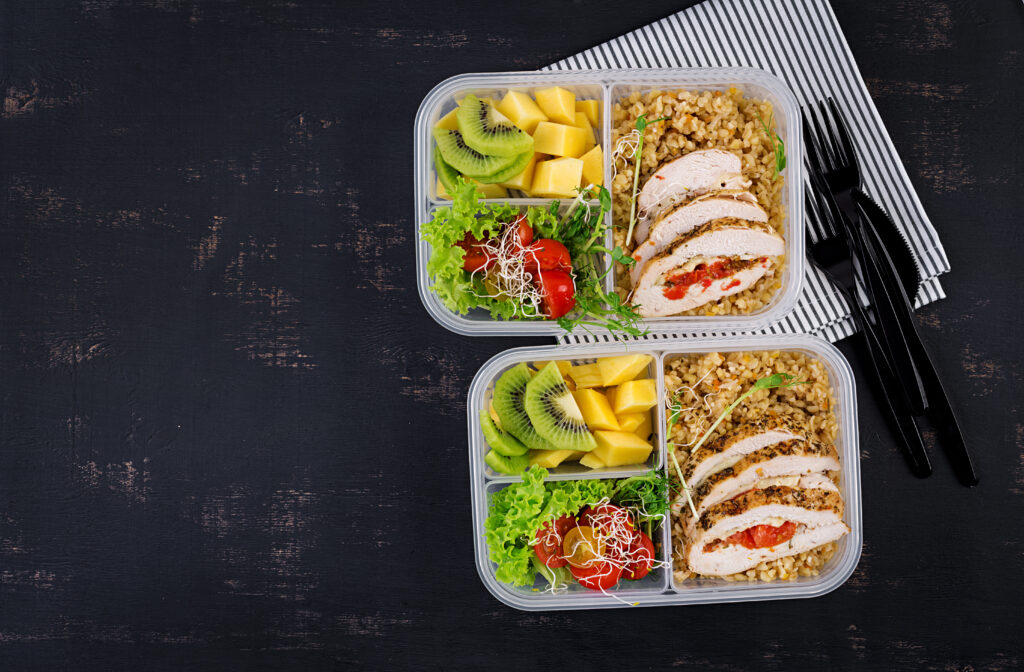
Pre-workout meals play a significant role in enhancing workout performance, optimizing energy levels, and supporting weight loss goals. Here’s why they matter:
1. Energy Boost
- Carbohydrates: Pre-workout meals rich in carbohydrates provide the necessary fuel for your body to perform physical activities. They break down into glucose, which is stored in muscles as glycogen and used during exercise.
- Protein: Including protein helps repair and build muscles, especially important if you’re engaging in strength training or high-intensity workouts.
- Fats: Healthy fats provide a longer-lasting source of energy, especially useful for longer endurance workouts.
2. Enhanced Performance
- Improved Endurance: Consuming a balanced pre-workout meal helps maintain blood sugar levels, preventing fatigue and enhancing endurance.
- Better Focus: The right nutrients can improve mental clarity and focus during your workout, allowing you to maintain good form and motivation.
3. Muscle Preservation and Growth
- Amino Acids: Protein-rich foods supply amino acids, which are the building blocks of muscle. This helps in muscle repair and growth, preventing muscle breakdown during strenuous workouts.
4. Improved Recovery
- Nutrient Availability: Having a meal before working out ensures that your body has the necessary nutrients readily available, facilitating quicker recovery post-exercise.
- Reduced Muscle Soreness: Proper nutrition before exercise can help minimize muscle soreness and stiffness afterward.
5. Weight Loss Support
- Increased Metabolism: Eating before a workout can kickstart your metabolism, helping you burn more calories during and after your exercise.
- Controlled Appetite: A pre-workout meal can prevent overeating later by stabilizing your blood sugar levels, reducing cravings and hunger post-workout.
6. Preventing Hypoglycemia
- Blood Sugar Levels: Exercising on an empty stomach can lead to low blood sugar levels, causing dizziness, weakness, and fatigue. A pre-workout meal helps maintain stable blood sugar levels.
7. Optimal Nutrient Utilization
- Balanced Nutrition: Combining carbohydrates, proteins, and fats ensures that your body gets a balanced intake of nutrients, optimizing overall health and workout efficiency.
Tips for Pre-Workout Meals
- Timing: Eat 30 minutes to an hour before your workout to allow for digestion and maximum energy availability.
- Portion Control: Keep meals moderate in size to avoid discomfort during exercise.
- Hydration: Drink water before, during, and after your workout to stay hydrated and maintain performance.
What to Look for in a Pre-Workout Meal for Weight Loss
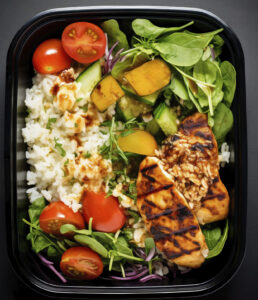 When selecting a pre-workout meal for weight loss, it’s important to focus on foods that provide the right balance of nutrients to fuel your workout, support muscle growth, and promote fat burning. Here are key factors to consider:
When selecting a pre-workout meal for weight loss, it’s important to focus on foods that provide the right balance of nutrients to fuel your workout, support muscle growth, and promote fat burning. Here are key factors to consider:
1. Balanced Macronutrients
- Carbohydrates: Choose complex carbohydrates that provide sustained energy, such as whole grains, fruits, and vegetables. They help maintain your energy levels throughout the workout.
- Protein: Include a source of lean protein to support muscle repair and growth. Options like Greek yogurt, lean meats, eggs, or plant-based proteins are ideal.
- Healthy Fats: Incorporate a small amount of healthy fats, like those from avocados, nuts, or seeds, to provide longer-lasting energy and support overall health.
2. Low in Added Sugars and Unhealthy Fats
- Avoid Sugary Foods: Steer clear of foods high in added sugars, which can lead to energy crashes and do not support long-term weight loss.
- Minimize Unhealthy Fats: Limit intake of trans fats and excessive saturated fats, as these can negatively impact your health and weight loss goals.
3. Portion Size
- Moderate Portions: Keep your pre-workout meal moderate in size to avoid feeling too full or uncomfortable during exercise. A large meal can lead to sluggishness and digestive discomfort.
4. Digestibility
- Easily Digestible Foods: Choose foods that are easy to digest and won’t cause gastrointestinal distress during your workout. Avoid foods that are high in fiber or very greasy right before exercise.
5. Hydration
- Fluid Intake: Include a source of hydration with your meal. Drinking water or a beverage with electrolytes can help maintain fluid balance and prevent dehydration during your workout.
6. Timing
- Optimal Timing: Consume your pre-workout meal 30 minutes to an hour before exercising. This timing allows for digestion and helps ensure that energy is available when you start your workout.
7. Nutrient Density
- Nutrient-Rich Foods: Focus on nutrient-dense foods that provide vitamins and minerals, supporting overall health and enhancing workout performance. Foods like leafy greens, colorful vegetables, and whole fruits are excellent choices.
Tips for Success
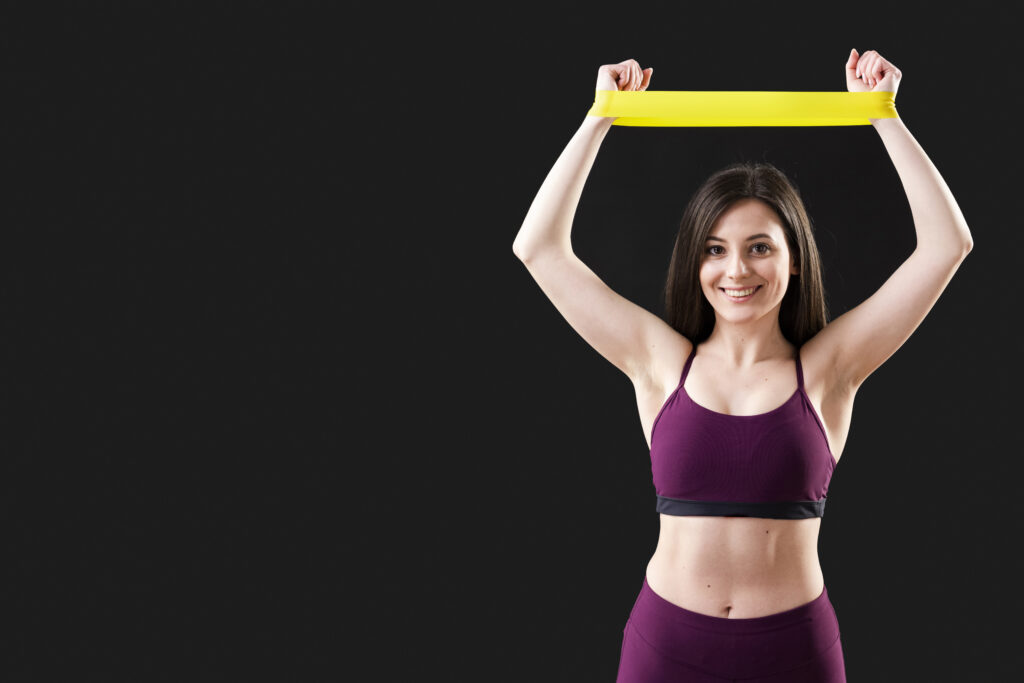 Experiment: Try different combinations to see which meals work best for your body and workout routine.
Experiment: Try different combinations to see which meals work best for your body and workout routine.- Listen to Your Body: Pay attention to how different foods affect your energy levels and performance.
- Stay Consistent: Consistency with your pre-workout nutrition can help optimize your workouts and support your weight loss efforts.
By focusing on these factors, you can choose pre-workout meals that not only fuel your exercise effectively but also support your weight loss journey.
Top 10 After-Workout Meals for Weight Loss
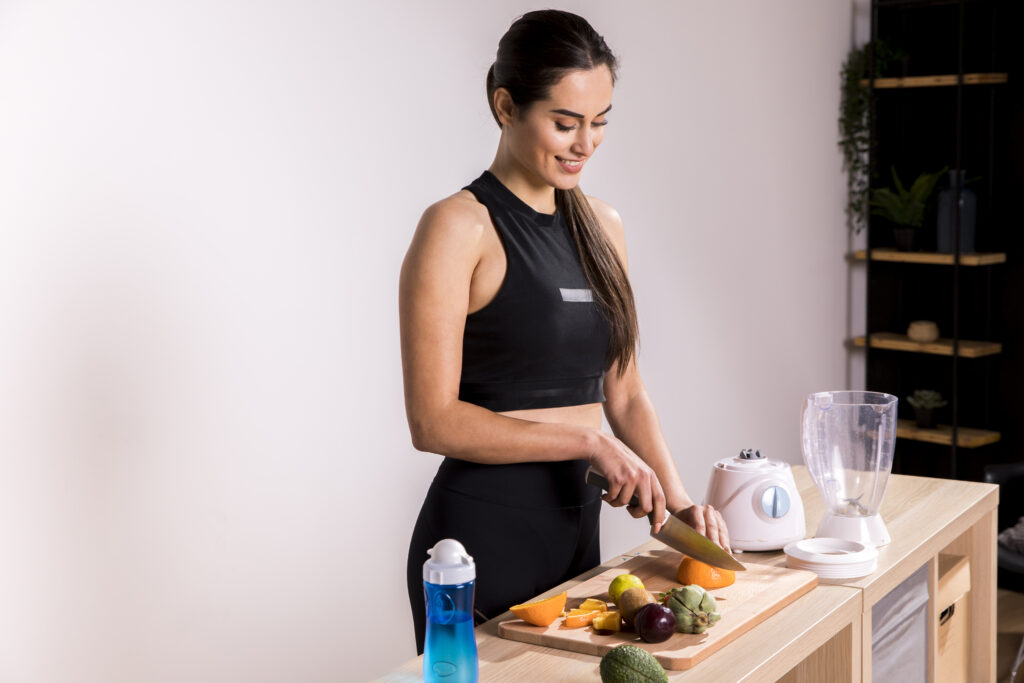 After a good workout, your body needs the right nutrients to recover and continue burning fat. Eating the right foods after exercise helps replenish energy, repair muscles, and keep your metabolism running strong. Here are ten excellent post-workout meals that are simple to prepare and perfect for weight loss.
After a good workout, your body needs the right nutrients to recover and continue burning fat. Eating the right foods after exercise helps replenish energy, repair muscles, and keep your metabolism running strong. Here are ten excellent post-workout meals that are simple to prepare and perfect for weight loss.
Why After-Workout Meals Matter
Eating after a workout is crucial because it:
- Replenishes glycogen: Restores the energy stores used during your workout.
- Promotes muscle repair: Provides protein to help muscles recover and grow.
- Prevents muscle loss: Helps maintain muscle mass, which is important for burning calories.
- Keeps metabolism high: Ensures your body continues to burn calories efficiently.
What to Look for in an After-Workout Meal for Weight Loss
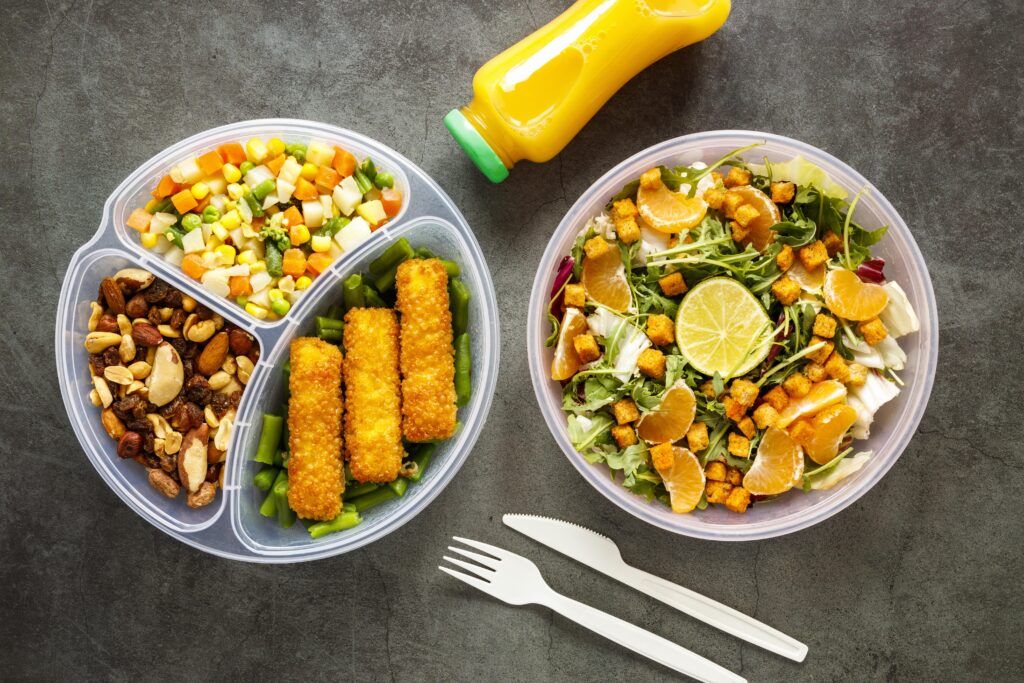 When choosing an after-workout meal for weight loss, look for:
When choosing an after-workout meal for weight loss, look for:
- Lean protein: Helps repair and build muscles.
- Complex carbohydrates: Replenishes energy without causing blood sugar spikes.
- Healthy fats: Supports overall health and helps keep you full.
- Low-calorie options: Ensures you stay within your daily calorie goals.
Top 10 After-Workout Meals for Weight Loss
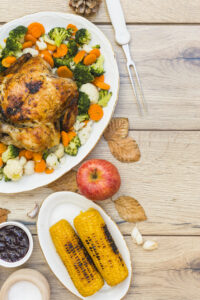 1. Grilled Chicken with Vegetables
1. Grilled Chicken with Vegetables
Grilled chicken with vegetables is a classic post-workout meal that is high in protein and fiber. The chicken helps with muscle repair, while the vegetables provide essential vitamins and minerals.
How to make it:
- 1 grilled chicken breast
- A variety of steamed or roasted vegetables (broccoli, bell peppers, carrots)
2. Greek Yogurt with Honey and Nuts
Greek yogurt with honey and nuts offers a good balance of protein, carbs, and healthy fats. Greek yogurt is rich in protein, honey provides quick energy, and nuts add healthy fats and crunch.
How to make it:
- 1 cup of Greek yogurt
- 1 tablespoon of honey
- A handful of almonds or walnuts
3. Quinoa and Black Bean Salad
Quinoa and black bean salad is a nutritious and filling option. Quinoa is a complete protein, and black beans add fiber and more protein.
How to make it:
- 1/2 cup of cooked quinoa
- 1/2 cup of black beans
- Chopped tomatoes, cucumber, and a squeeze of lime juice
4. Cottage Cheese and Pineapple
Cottage cheese and pineapple is a refreshing and protein-packed meal. Cottage cheese provides slow-digesting protein, and pineapple adds natural sweetness and vitamins.
How to make it:
- 1/2 cup of cottage cheese
- 1/2 cup of pineapple chunks
5. Tuna Salad on Whole Grain Crackers
Tuna salad on whole grain crackers is a convenient and protein-rich option. Tuna is high in protein and omega-3 fatty acids, and whole grain crackers provide fiber and complex carbs.
How to make it:
- 1 can of tuna in water, drained
- 1 tablespoon of Greek yogurt or light mayo
- Whole grain crackers
6. Protein Smoothie
A protein smoothie is quick and easy to prepare. It provides a good mix of protein, carbs, and nutrients, especially if you add fruits and vegetables.
How to make it:
- 1 scoop of protein powder
- 1 cup of almond milk or water
- 1 banana
- A handful of spinach
7. Egg White Omelette with Spinach
An egg white omelette with spinach is low in calories but high in protein. Spinach adds fiber and important vitamins.
How to make it:
- 3-4 egg whites
- A handful of spinach
- Cook with a small amount of olive oil
8. Salmon with Asparagus
Salmon with asparagus is a nutritious meal that provides healthy fats and protein. Salmon is rich in omega-3 fatty acids, and asparagus is a low-calorie vegetable full of vitamins.
How to make it:
- 1 small salmon fillet, baked or grilled
- A serving of steamed asparagus
9. Whole Grain Toast with Avocado and Egg
Whole grain toast with avocado and egg is a balanced meal with protein, healthy fats, and complex carbs. Avocado is rich in fiber, and eggs provide high-quality protein.
How to make it:
- 1 slice of whole grain bread
- 1/2 avocado, mashed
- 1 poached or boiled egg
10. Turkey and Hummus Wrap
A turkey and hummus wrap is a tasty and portable option. Turkey is a lean protein, and hummus adds healthy fats and fiber.
How to make it:
- A whole grain wrap or tortilla
- Sliced turkey breast
- 2 tablespoons of hummus
- Add spinach or lettuce for extra crunch
Balance Your Macronutrients
Aim for a balance of protein, carbs, and fats in your after-workout meal. This helps ensure you get a well-rounded intake of nutrients for optimal recovery and continued fat loss.
Avoid Sugary Foods
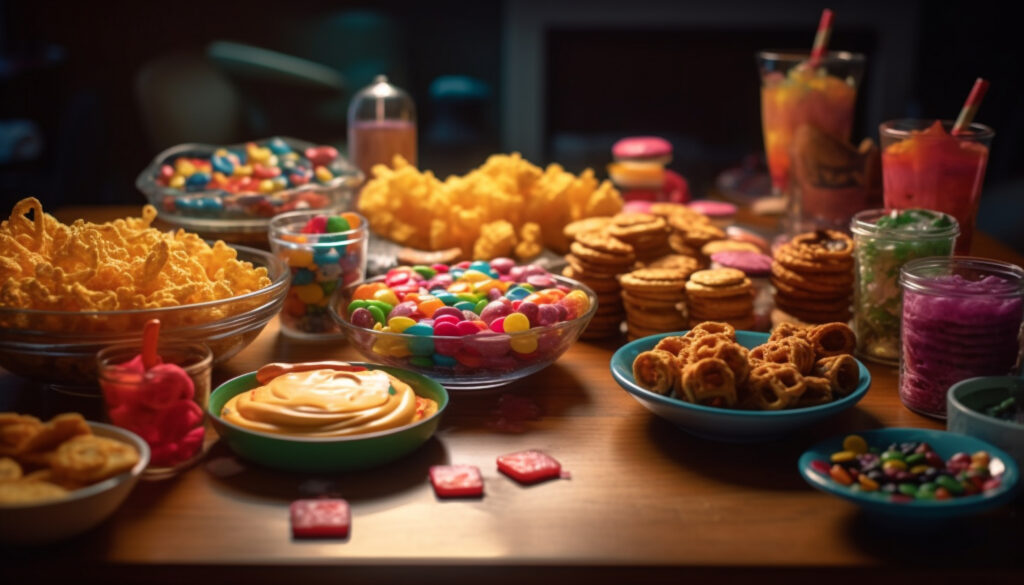
Stick to whole foods and avoid sugary snacks or drinks. Sugary foods can cause a spike in blood sugar followed by a crash, which can leave you feeling tired and sluggish.
Common Mistakes to Avoid
Skipping Your Post-Workout Meal
Skipping your post-workout meal can hinder your recovery and slow down your progress. Always make time to eat something nutritious after exercising.
Eating Too Much
While it’s important to refuel, avoid overeating. Stick to portion sizes that align with your weight loss goals.
Relying Solely on Supplements
Supplements can be beneficial, but they should not replace whole foods. Focus on getting most of your nutrients from natural food sources.
Ignoring Carbs
Carbohydrates are important for replenishing glycogen stores and providing energy. Don’t be afraid of carbs; just choose complex carbs over simple sugars.
Conclusion
Choosing the right after-workout meal is crucial for weight loss. The best options are high in protein, contain complex carbohydrates, and include healthy fats. These meals will help you recover, build muscle, and keep your metabolism running strong. By incorporating these meal ideas into your routine, you can enhance your workout results and stay on track with your weight loss goals. Remember, consistency and balance are key, so focus on eating nutritious foods that support your overall health and fitness journey.
FASQ
1. Why is it important to eat after a workout?
Eating after a workout is crucial because it helps replenish glycogen stores, repairs and builds muscles, prevents muscle loss, and keeps your metabolism running efficiently. This ensures that your body recovers properly and continues to burn calories effectively.
2. What should I eat after a workout to lose weight?
For weight loss, focus on meals that are high in lean protein, complex carbohydrates, and healthy fats. Examples include grilled chicken with vegetables, Greek yogurt with honey and nuts, quinoa and black bean salad, and protein smoothies. These options help with muscle repair and provide sustained energy.
3. How soon should I eat after exercising?
It’s best to eat within 30 to 60 minutes after your workout. This timing allows your body to absorb nutrients more effectively, aiding in quicker recovery and muscle repair.
4. Can I skip my post-workout meal if I’m not hungry?
It’s not advisable to skip your post-workout meal, even if you’re not hungry. Your body needs nutrients to recover and to maintain muscle mass, which is essential for a healthy metabolism and continued weight loss. If you’re not hungry, consider a small, nutrient-dense snack like Greek yogurt or a protein smoothie.
5. How much protein should I consume after a workout?
Aim to consume around 20-30 grams of protein after a workout. This amount helps with muscle repair and growth. Options like a grilled chicken breast, a protein shake, or a serving of Greek yogurt can meet this requirement.
6. Are carbohydrates important in a post-workout meal for weight loss?
Yes, carbohydrates are important in a post-workout meal because they replenish glycogen stores that were depleted during exercise. Choose complex carbohydrates like quinoa, whole grain toast, or sweet potatoes to provide sustained energy without causing blood sugar spikes.
7. Can I just have a protein shake after my workout?
While a protein shake can be a convenient post-workout option, it’s best to pair it with some carbs and healthy fats for a more balanced meal. Adding fruits, vegetables, or nuts to your protein shake can make it more nutritious and satisfying.
8. What are some quick and easy post-workout meals?
Some quick and easy post-workout meals include:
- Greek yogurt with honey and nuts
- Cottage cheese and pineapple
- Tuna salad on whole grain crackers
- Egg white omelette with spinach
- Turkey and hummus wrap
These options are simple to prepare and provide the necessary nutrients for recovery.
9. Should I avoid fats in my post-workout meal?
Healthy fats should not be avoided in your post-workout meal. They are essential for overall health and can help keep you full and satisfied. Incorporate sources of healthy fats such as avocados, nuts, seeds, and olive oil into your meal.
10. Can I eat fruit after a workout?
Yes, fruit is a great addition to a post-workout meal. Fruits like bananas, berries, and apples provide natural sugars for quick energy, as well as essential vitamins and minerals. Pairing fruit with a protein source like Greek yogurt or cottage cheese can make a balanced and nutritious post-workout snack.
11. What if I exercise late at night? Should I still eat after my workout?
If you exercise late at night, you should still eat a small, balanced meal or snack to aid recovery and muscle repair. Opt for lighter options that are easy to digest, such as a protein smoothie, Greek yogurt with berries, or a small serving of cottage cheese with fruit.
12. Can I have coffee or tea after my workout?
Yes, you can have coffee or tea after your workout, but be mindful of what you add to it. Avoid sugary additives and high-fat creamers. Black coffee, green tea, or herbal teas can be good choices that also provide some antioxidants.
13. What are some vegetarian or vegan post-workout meal options?
Vegetarian or vegan post-workout meal options include:
- Quinoa and black bean salad
- Smoothie with plant-based protein powder, almond milk, and spinach
- Hummus and vegetable wrap
- Tofu stir-fry with vegetables
- Lentil soup with whole grain bread
These meals provide ample protein and other essential nutrients without any animal products.
14. How can I avoid overeating after a workout?
To avoid overeating after a workout, plan your meals and snacks in advance. Focus on balanced meals with protein, complex carbs, and healthy fats to keep you full and satisfied. Eating slowly and listening to your hunger cues can also help prevent overeating.

